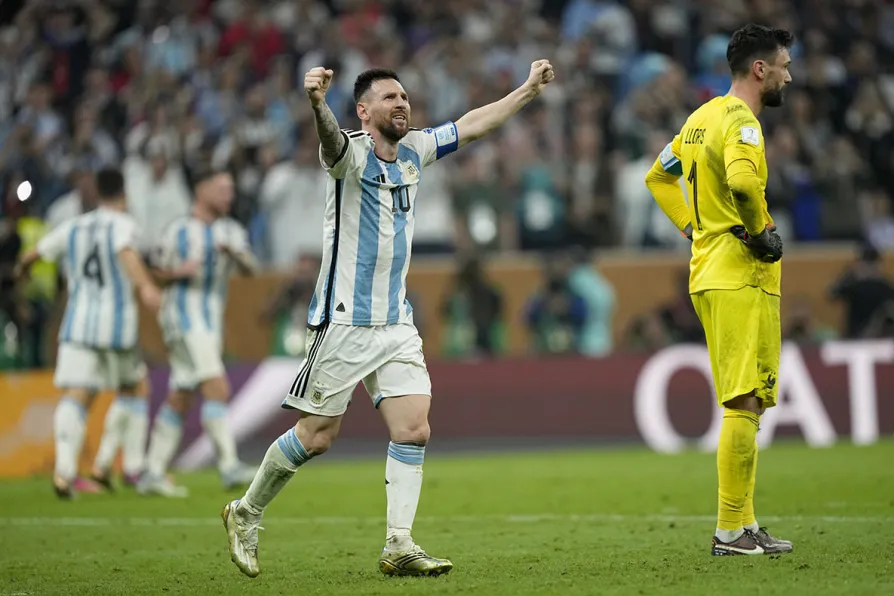
 Argentina's Lionel Messi celebrates after scoring his side's third goal during the World Cup final soccer match between Argentina and France at the Lusail Stadium in Lusail, Qatar, Sunday, Dec. 18, 2022.
Argentina's Lionel Messi celebrates after scoring his side's third goal during the World Cup final soccer match between Argentina and France at the Lusail Stadium in Lusail, Qatar, Sunday, Dec. 18, 2022.
The football on show at the 2022 World Cup made one of the best ever in a sporting sense.
The group stage finales were thrilling, there were memorable knockout games, and the final had all the drama you could wish for including a happy ending to one of the game’s most prominent recent chapters.
Despite this, there have still been questions raised about the quality of the football on show, leading to discussions around whether what makes a World Cup good or bad is determined by entertainment or quality.

Forward’s rise as the tournament’s leading scorer reflects a journey shaped by heritage and belief as Morocco reach the final, writes JAMES NALTON

Joao Pedro’s emotional goals against Fluminense captured the magic of an international club competition. But even as fans bring colour and passion, the Club World Cup’s deeper issues loom large, writes JAMES NALTON

JAMES NALTON discusses the use of dynamic ticket pricing at the 2026 World Cup and how it amplifies a culture already set up to squeeze as much money from fans as possible











